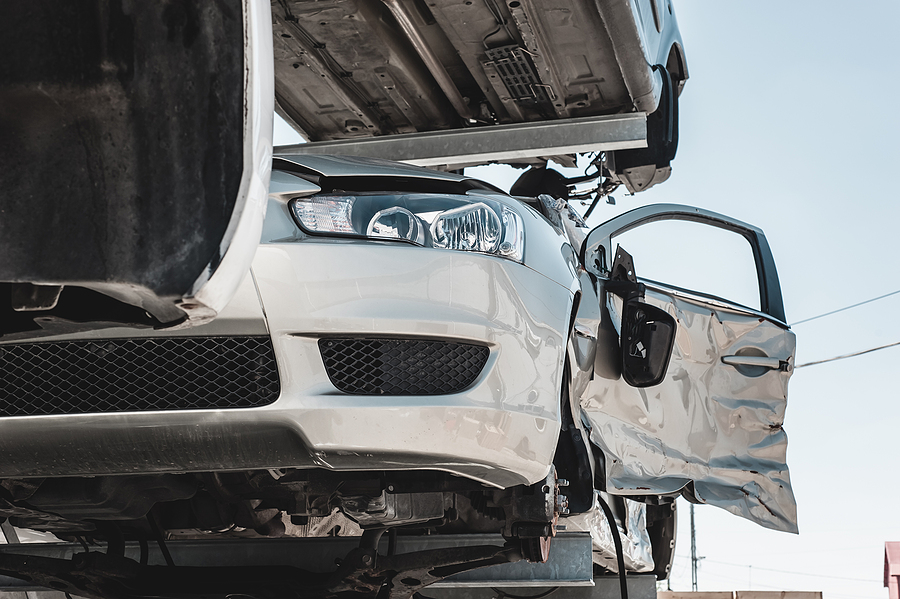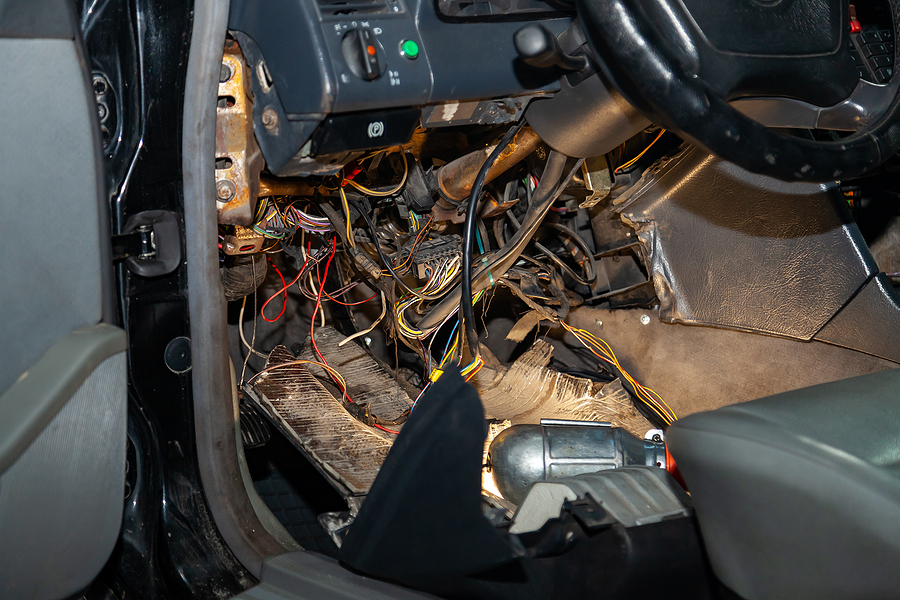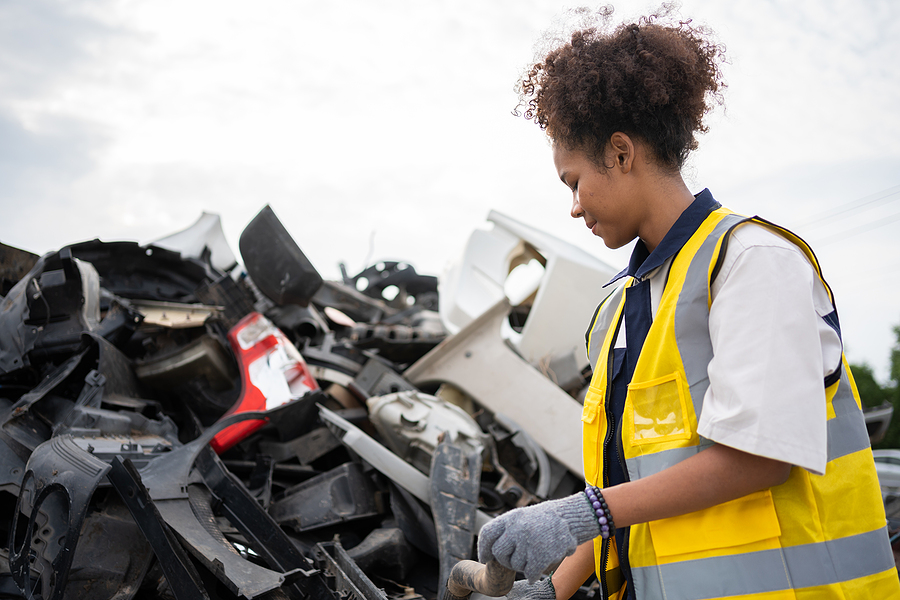When your car reaches the end of its life, it can feel like a burden sitting in your driveway. You might wonder what to do with it, how to dispose of it responsibly, and if it has any remaining value. Choosing the right car recycler is a significant decision, not just for your wallet, but for the environment as well. A reputable recycler ensures your vehicle is handled properly, with its materials reused and hazardous waste managed safely.
This guide will walk you through everything you need to know to find the best local car recyclers in Cincinnati, Ohio. We’ll cover the benefits of automotive recycling, what to look for in a recycler, and the key questions to ask to ensure you make an informed choice. By the end, you’ll be equipped to turn your old vehicle into an opportunity for both financial gain and environmental responsibility.

Why Recycle Your Old or Totaled Car?
Deciding to recycle your old car is a powerful choice with both environmental and economic advantages. It’s more than just getting rid of a junk car; it’s a contribution to a larger, sustainable cycle.
Each year in the United States, over 12 million vehicles are recycled, according to the Environmental Protection Agency (EPA). This massive effort keeps millions of tons of waste out of landfills. When a car is recycled, up to 80% of its materials by weight can be reclaimed and reused. This includes valuable scrap metal, plastics, and glass, which are then used to manufacture new products. This process significantly reduces the need to mine for new raw materials, which in turn conserves natural resources and lowers energy consumption.
Beyond the environmental impact, there’s a direct economic benefit for you. Junk car buyers offer cash for junk cars, providing a simple way to get money for a vehicle that is no longer roadworthy. This turns what seems like a worthless asset into a financial return, helping you recoup some of its junk car value.
What to Look for in a Car Recycler
Finding a trustworthy car recycler in Cincinnati requires a bit of research. Not all auto salvage yards operate with the same standards. Here are the key factors to consider to ensure you’re working with a reputable company.
Licensing and Certification
The most important factor is to confirm that the junk car buyer is properly licensed and certified. In Ohio, automotive scrappers must hold specific licenses to operate legally. These certifications ensure they adhere to state and federal regulations for vehicle dismantling and waste disposal.
Working with a licensed auto scrapyard protects you from potential legal issues and scams. Unlicensed operators may engage in unethical practices, offer unfairly low prices, or dispose of hazardous materials improperly. Always ask for proof of licensing before agreeing to any service.
Environmental Practices
Responsible automotive recycling is crucial for protecting the environment. A professional junk car recycling service will follow strict protocols for handling hazardous materials found in vehicles, such as battery acid, antifreeze, gasoline, and mercury. They will have a clear process for draining these fluids and disposing of them safely to prevent soil and water contamination.
Ask about their environmental policies and look for certifications like those from the Automotive Recyclers Association (ARA), which indicate a commitment to eco-friendly practices.
Customer Reviews and Reputation
A company’s reputation speaks volumes. Before contacting a local automotive recycling company, search for online reviews and testimonials from previous customers in the Cincinnati area. Websites like Google, Yelp, and the Better Business Bureau (BBB) can provide valuable insights into their reliability, customer service, and fairness.
Pay attention to feedback regarding the accuracy of quotes, the professionalism of the staff, and the ease of the pickup process. Consistent positive reviews are a strong indicator of a trustworthy business.
Range of Services
Top-tier car recyclers offer a comprehensive range of services that make the process convenient for you. Look for companies that provide:
- Free Towing: Reputable junk car buyers will often offer free pick-up services, saving you the hassle and expense of transporting the vehicle.
- On-the-Spot Payment: Many recyclers provide cash for junk cars at the time of pickup, making the transaction quick and simple.
- Paperwork Assistance: The recycler should guide you through the necessary paperwork, such as transferring a car title, to ensure the process is legally sound.
- Acceptance of All Conditions: A good auto salvage yard will typically accept vehicles in any condition, whether they’re running or not.
Receive a Same-Day Cash Offer for Your Car! ✨
How to Find Junk Car Buyers in Cincinnati
Now that you know what to look for, here are a few practical ways to find reliable car recyclers in your area.
- Online Search: A simple search for “car recyclers Cincinnati” or “cash for junk cars Ohio” will yield numerous options. Visit their websites to learn about their services, read their mission statements, and look for contact information and service areas.
- Local Directories: Check online directories like the Yellow Pages or local business listings for automotive recycling and scrap metal recycling businesses.
- Referrals: Ask friends, family, or local mechanics for recommendations. A personal referral can be one of the most reliable ways to find a trustworthy service provider.
Key Questions to Ask Your Recycler
Once you have a shortlist of potential recyclers, contact them and ask these important questions to finalize your decision:
- Are you a licensed and insured car recycler in Ohio? This should be your first question to ensure they operate legally.
- What is your process for handling hazardous materials? Their answer will reveal their commitment to environmental responsibility.
- How do you determine the junk car value? A transparent recycler will explain how they calculate their offer based on factors like weight, make, model, and current scrap metal prices.
- Are there any hidden fees for towing or other services? Reputable companies will be upfront in regards to all costs.
- What paperwork is required from me? They should clearly explain what you need to provide, such as the vehicle title and a form of identification.
- When will I receive payment? Clarify if payment is made on the spot or at a later time.
In Summary
Choosing the right car recycler in Cincinnati is a decision that benefits you and the community. By taking the time to research your options, you can ensure you get a fair price for your vehicle while supporting a business that prioritizes environmental protection and ethical practices. Your old car has one last important job to do—let a professional recycler help it do it right.
Ready to take the next step? Request a free junk car offer! Contact our certified local car recyclers in Cincinnati and responsibly dispose of your junk vehicle today. We pay cash on the spot and provide free junk car towing. No hidden fees—no runaround. Just fair offers and EPA-approved scrapping operations.
Related Post: The Future of Cars: Driving Toward More Effective Auto Recycling




